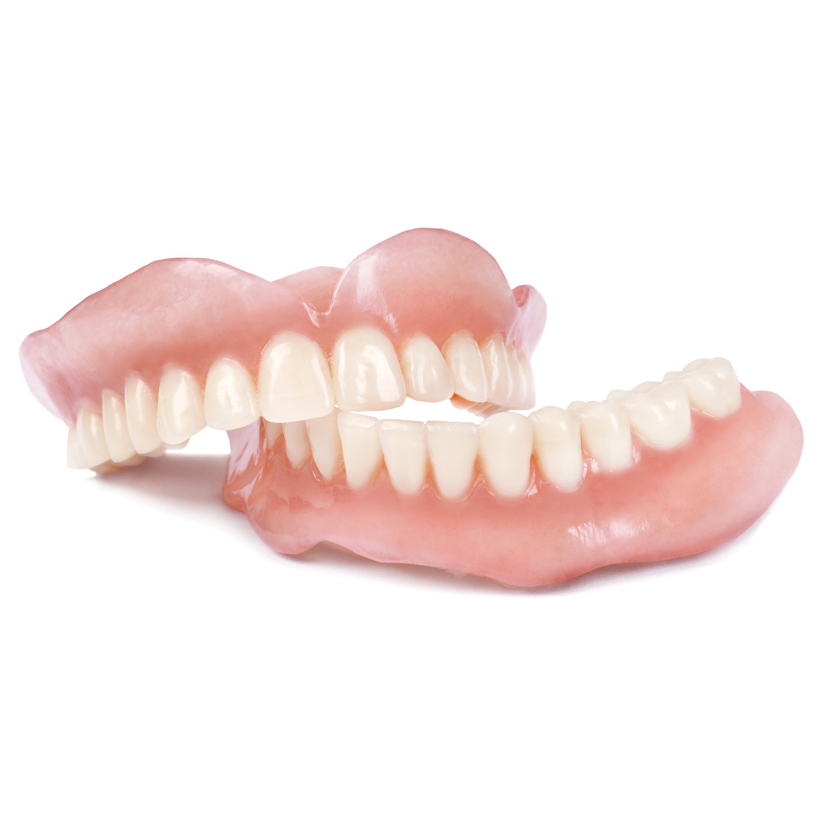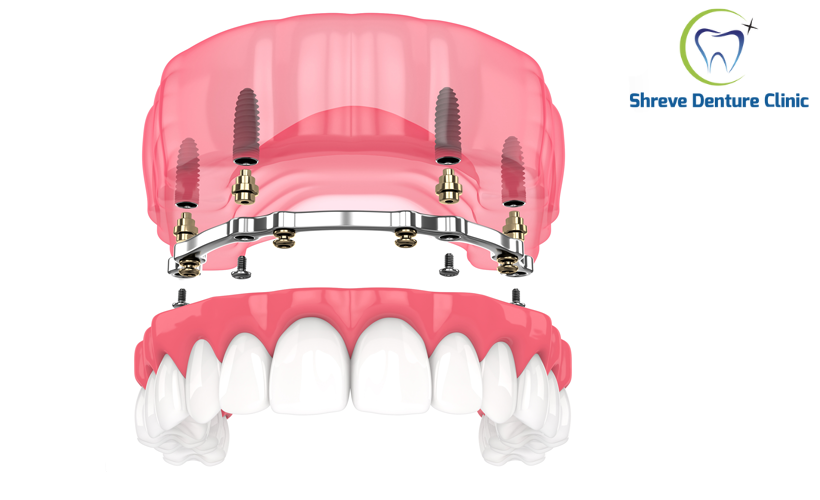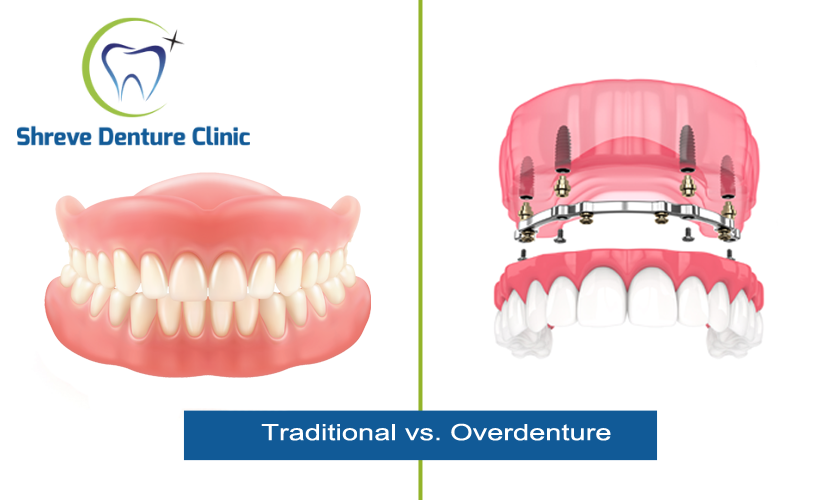The sad reality is that once your teeth are lost, they cannot be regrown. This can leave you with gaping holes that are not just embarrassing but also make chewing difficult. The good news is that you can opt for dentures to help restore your smile.
However, a little research will tell you that you have two options to choose from. To help you make an informed decision, we will talk about traditional dentures vs implant-supported dentures.

What Are Dentures?
Before we compare and contrast the two types, we thought it might be helpful to first talk about what a denture is. To put it simply, dentures are devices designed to replace missing teeth. They are designed specifically for you and can either be permanent dental implants or removable devices.
You can either receive full dentures, in which all your teeth are replaced, or partial ones that are designed to fill in a few missing teeth.
Understanding Traditional Dentures
Conventional dentures, which are sometimes referred to as removable dentures, are made up of an acrylic base that is designed to look like gum tissue and synthetic teeth, which are crafted using either porcelain or acrylic resin.
They are fitted precisely to the individual’s mouth and secured by clasps that fasten to the surviving natural teeth. Other methods for securing these devices may also be used, such as a dental adhesive.
One of the main benefits of these dentures is the fact that they can be removed and cleaned thoroughly, preventing a build-up of bacteria. Let’s look at other pros and cons of this option.
The Benefits of Choosing a Traditional Denture
- Flexibility. Because these dentures are not fixed, you are not restricted. If you would like to opt for an implant-supported denture later on, you have the freedom to make that change.
- It’s non-invasive. Unlike the other option, you will not need to undergo an extensive surgical procedure to have your denture inserted. Dental implant placement is a long and drawn-out process.
- Cost-effectiveness. The truth is that the traditional option is often more affordable than implant dentures, so if you’re hoping to restore your smile without breaking the bank, this would be the option to go for.
However, keep in mind that although traditional dentures offer a number of benefits, there are also certain limitations that you need to familiarize yourself with.
Drawbacks of Choosing Traditional Dentures
- Bone loss over time. Because these dentures are not implanted into the jaw, they may result in bone resorption over time, which can change the appearance of your face. In such cases, additional bone grafting may be required to restore a person’s natural appearance.
- Maintenance. A traditional tooth replacement option will require more cleaning than an implant denture.
- They aren’t always stable. Conventional dentures depend on denture adhesive or suction to keep them in place, but this can’t guarantee a tight fit, which might cause movement or slipping when speaking or eating.
Now that you understand traditional dentures, let’s talk about implant-retained dentures.
Implant Supported Dentures (Over-denture)
Over-denture implants, which are inserted into the gum and bone, are used to anchor these dentures. During a process known as osseointegration, implant supported dentures are secured with small titanium posts. Which are surgically placed into the patient’s jawline and eventually merge with the bone.
After that, connectors or abutments are used to fasten the dentures or false teeth to the mouth, giving the over-denture a firm and sturdy base. This option involves the insertion of permanent false teeth that cannot be removed for cleaning.

The Advantages of Choosing This Option
- They last longer. Because implant dentures are set into the jaw bone, they last much longer than traditional ones, essentially mimicking permanent teeth. Plus, you only need to spend a few seconds cleaning them!
- Better biting and chewing. Unlike removable dentures, this option offers better biting and chewing, as it is a lot more stable.
- No changes in facial shape. Your implants are set in the jaw, which means that there will not be any bone loss over time.
Drawbacks You Need to Know About
- Higher cost. Since the insertion of the implants is a surgical procedure, you can expect to pay a lot more for the procedure.
- Greater risks. As with all surgeries, there is a higher risk of infection, bleeding, or the procedure going wrong. This is why it is important that you work with a reliable dental expert to ensure that everything goes well.
- Not everyone is eligible. The truth is that this option may not be available to everyone, as factors such as the person’s overall health are taken into consideration when determining whether they are eligible.
Choosing the Right Option
It’s important to consider a few factors before choosing between these two denture choices. Ideally, you should get advice from a professional Denturist before making your decision, but in the meantime, here is an overview of some of the things that you’ll need to think about:
Eligibility
As discussed previously, not everyone is eligible for permanent implants. In such cases, the individual will have no other choice but to go for traditional dentures. Elements such as your bone density and oral health can help to determine whether you can pursue this option.
Budget
The truth is that there is a considerable price difference between the two options, so think carefully about which one would best suit your budget. Talk to your dental practitioner to determine whether payment options are available or if you’ll need to pay the total cost upfront.
Chewing and Biting
An implant-supported denture will offer a stronger bite, while traditional dentures may make it more challenging to chew and bite. You will also need to remove your dentures at the end of the day to clean them if you go the traditional route, so consider which option would best suit your lifestyle.
Think About Your Long-term Goals
While traditional dentures may restore your smile in the short term, you might experience bone loss later on, as there are no permanent anchors to ensure that your facial shape remains the same. This could result in greater costs incurred in the long run, as bone graft surgery will be needed to restore your jawline.
Contact Shreve Denture Clinic Today!
If you need help choosing between these two denture solutions, then we can help. With many years of experience in the industry, we have what it takes to ensure that you make the right choice to combat the effects of tooth loss.
Our team will ensure that your denture procedure goes smoothly, regardless of whether you go for traditional or implant-supported dentures.

When you choose us, you can expect personalized advice and guidance, privacy, confidentiality, and a one-year guarantee for breaking and chipping.
Contact Shreve Denture Clinic today to learn more about our denturist services!








